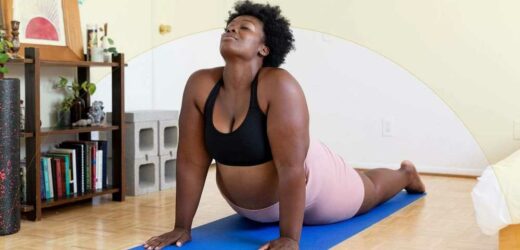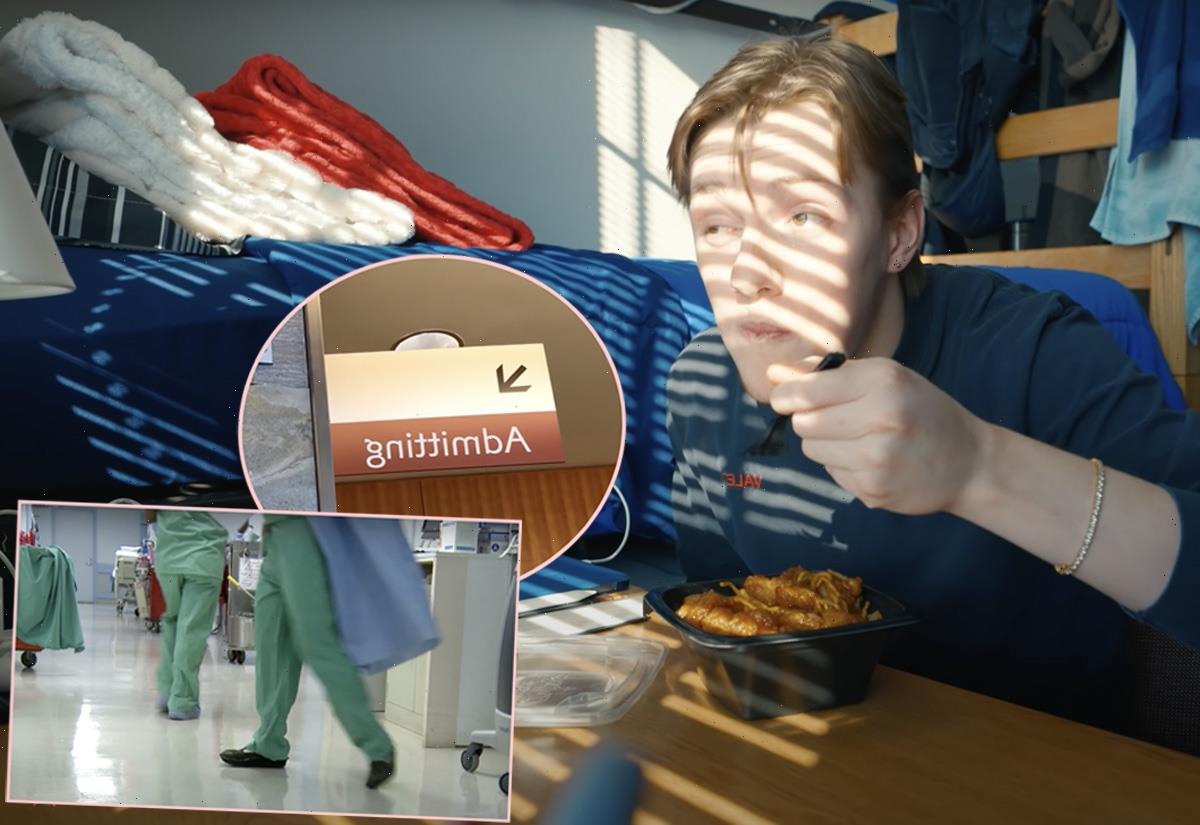When you're stressed out and there's way too much on your plate, it's normal for sex to fall down on the priority list. But if you've noticed your desire for sex has tanked, it could be time to adjust your workouts accordingly. Yep, there is a correlation between how often you exercise and how often you want to get it on.
"There are many factors that influence someone's libido, and exercise is one of those factors," says sexologist Rebecca Alvarez, founder of Bloomi, a marketplace for sexual wellness products. Generally speaking, moderate movement is linked to increases in libido while excessive exercise is linked to libido lags. But why is that, exactly?
Below, we break down what your 'libido' actually refers to, and what can cause it to ebb and flow. Plus, experts offer insights on why exercise is one of those key influencers — and how adjusting your workout routine could lead to feeling hornier.
High and Low Libido, Defined
Before we can explore what your workout routine is trying to tell you about your libido, let's get clear on what the term refers to. At its most distilled, libido refers to a person's general interest in sex, explains Alvarez. Synonymous with terms like 'sex drive' and 'sexual appetite', it's someone's baseline over the course of weeks, months, and years, rather than their arousal in a specific moment, she says.
While libido is generally described in terms like 'high' or 'low', there are no qualitative terms to measure it. Unlike metrics like resting heart rate and blood pressure, which have numerical ranges that are generally considered high or low for the entire population, libido does not.
The measures of libido are highly subjective for every sex-haver, says Alvarez. For example, desiring sex once a week may feel high to one person, but low to another. So, if someone tells you they have a 'high libido' or 'low libido' you'll need to ask follow up questions like, "What does that mean to you?" or "Wait, so in your dream world how often would you have sex?" to actually know what they mean.
"It's important to know that whether someone has a high libido or low libido or somewhere in between, whatever that means to them, that is normal," says holistic health expert Ana Gonzalez Herrera, founder and CEO of Hormone University, an educational platform about hormones. The only potentially abnormal libido is the one that drastically changed seemingly out of nowhere. But more on this below…
What Controls Your Libido, Exactly?
So many things! "Your libido is influenced by a combination of psychological, physiological, and emotional factors," says Herrera. That includes things like your stress levels, mental well-being, hormone levels (and fluctuations), medications, and overall health (and health changes).
Your libido is also hugely affected by general lifestyle choices (sleep! food! alcohol! drugs!), and if you're partnered, could also be affected by your general happiness in your relationship, or uh, situationship. As she puts it, it's unlikely that you'll desire sex with a partner you're fighting with, or you haven't historically had pleasurable sex with. That checks!
The Relationship Between Libido And Exercise
Your exercise routine — or lack thereof — is one of the main factors influencing your libido. In short, that's because your exercise routine has the power to influence your stress levels, overall mental health, sense of self, and lifestyle choices, says physical therapist Grayson Wickham, D.P.T., C.S.C.S., founder of digital movement platform Movement Vault.
Generally speaking, most people notice decreased stress, improved mental well-being, and increased confidence, as well as make better lifestyle choices when they have a regular exercise routine. As such, a regular movement practice is usually linked to a greater interest in sex, says Alvarez — a connection that research has supported time and time and time again, by the way.
Physiological factors aside, Herrera notes that exercise can also positively influence the hormones that impact someone's interest in sex. "Moderate exercise has been shown to boost testosterone levels in men and women," she says. Given that testosterone is dubbed the 'sex hormone', it should (ahem) come as no surprise that a rise in testosterone is linked with a rise in libido. Indeed, research has shown that those who exercise have higher testosterone levels compared to those who are sedentary.
And in case you were wondering: Both resistance training and endurance training have been shown to have this effect. So whether you're a cardio bunny or weight room warrior, your libido will reap the reward.
…But Exercising Too Much Can Have the Opposite Effect
The problem is, as far as your libido is concerned, when it comes to exercise more actually isn't better since you can send your body into a state of over-training, according to Wickham.
"Overtraining syndrome is caused by a combination of too much exercise and not enough recovery," he explains. And it can lead to a number of unsavory side effects such as prolonged fatigue, moodiness, feelings of stress and agitation, loss of appetite, poor sleep quality, and lingering injury and soreness.
As you might guess, it's pretty tough to want to roll around in the hay or power up your vibe when you're feeling any of these symptoms — and generalized fatigue is an especially brutal libido killer. "It's difficult to either desire or have sex if you're exhausted," says Herrera. True.
In fact, it's an actual evolutionary response to prioritize fitness recovery over reproduction (read: sex). "The body goes into recovery mode after strenuous workouts in order to repair your muscles," she explains. "This means that your body is prioritizing its efforts on creating an anti-inflammatory response, and not on the idea of getting sex." In other words, following a workout, muscle repair trumps making love, as far as your body is concerned.
More extreme instances of overtraining can even cause hormonal disarray. Train too hard and your cortisol levels (that's the stress hormone) can climb and climb and climb, explains Herrera. Because the entire endocrine (hormone) system is interconnected, when your cortisol levels go up, it can cause your other hormones (including the sex hormone!) to dip, she explains. The result: You're less horny!
According to Wickham, most of the general population doesn't have to worry about inching into over-training territory — research suggests endurance athletes, elite runners, and high-level athletes are especially susceptible. That said, even if you're new to exercise it's important to pay extra attention to your body for any signs and symptoms of overtraining — including your sex drive.
What This Means For You
Changes in how often you want sex can be a sign that something is up with your body — basically, it's your body's check engine light — so don't just brush them aside.
If you're noticing that your libido is lower or higher than you want it — and especially newly so —you should talk to your healthcare provider, rather than self-prescribing more or less exercise, says ob-gyn Lyndsey Harper, M.D., founder and CEO of Rosy, a sexual health wellness technology platform. They'll be able to run some underlying tests to discern what's going on, if anything. They'll also help you understand if any of the medications you're on may be the cause, she says. (Birth control and antidepressants, for example, are known to have libido-squashing effects).
Even if your libido isn't the reason you're re-thinking your exercise routine, chatting to your provider before making any edits to your exercise routine is always a good move, generally speaking, because factors like your age, pre-existing health conditions, and medications all influence how much exercise your body can (and should!) handle.
In the meantime, if you're a person who hits the Peloton, trail, or box on the reg, consider re-prioritizing your recovery. According to Wickham, doing stress relief work, consuming quality foods, and incorporating recovery protocols like sauna sitting, foam rolling, and self-massaging all support the body and your libido, too.
Source: Read Full Article


